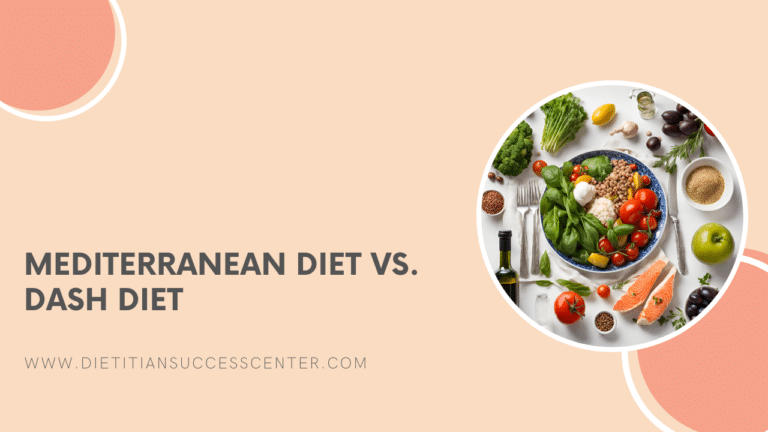

Written by Olivia Farrow, RD, MHSc
Reviewed by Krista Kolodziejzyk, RD, MPH, MBA
As dietitians, we all want our clients to meet their nutrition and wellness goals successfully. So, what can we do as practitioners to help them achieve these goals. Mastering goal setting in counseling and utilizing SMART nutrition goals can help clients create a specific action plan, increasing their chances of success! (1)
What are SMART nutrition goals?
SMART is an acronym that stands for
-
- Specific
-
- Measurable
-
- Achievable
-
- Relevant
-
- Timely
SMART nutrition goals help clients break down their lofty goals into specific steps that are attainable and trackable.
Let’s break down each of the components of nutrition SMART goals and how you can support your client in setting them.
SPECIFIC
Help your client plan exactly what they will do to achieve their goal.
What will they actually be doing?
Encourage them to break their goal down into clear instructions.
For example, if their goal is to eat more vegetables, a specific goal would be to add a garden salad to every weeknight dinner.
See more examples of smart goals for dietitians below.
MEASURABLE
Include criteria to make a goal trackable.
Adding a garden salad 5 out of 7 days each week (in the example above) would be a measurable component to this goal.
The SMART goal tracker worksheets included in DSC’s Goal Setting resource can help your client stay accountable to their goal and track their progress.
ACHIEVABLE
Having lofty goals can sometimes lead to unrealistic expectations and “all-or-nothing” thinking. Instead, set your client up for success by helping them choose realistic goals for their situation.
This might mean helping them set small, achievable goals while tracking towards a larger, more challenging goal.
Creating a plan for overcoming obstacles can also help, like coming up with a list of “backup” meals for clients who have the goal of eating more foods prepared at home.
RELEVANT
Finding goals that are meaningful and inspiring to the individual makes them much more likely to be successful.
You can use goal-setting prompts with your client to help them develop meaningful goals on their own.
You will also help them to determine whether the goal has relevance to their overall health and wellness needs.
TIMELY
Setting a realistic timeline for goal achievement provides an opportunity to track progress, experience mini-wins to encourage progress, and reassess whether the goal needs modification.
Typically, this might mean that the client tracks the goal for 1 week, 1 month, or between nutrition counseling sessions.
Examples of SMART nutrition goals
Goal setting in nutrition counseling may be a new experience for you and your client. Take a look at these SMART goals for nutrition examples for some inspiration, then practice coming up with your own!
Original Goal: I want to eat less lunchtime takeout
SMART Goal:
I will pack my lunch before bed every workday this week
Original Goal: I want to eat breakfast more often
SMART Goal:
I will spend 30 minutes every Sunday to make myself 5 overnight-oatmeal jars for breakfast this week
Original Goal: I want to know what food is causing my stomach pain
SMART Goal:
I will keep my food & symptom journal printout with me and write down everything I eat over the next 3 days
SMART goals are specific, measurable, achievable, relevant, and timely. Setting SMART nutrition goals creates a clear action plan that helps individuals make attainable progress toward bigger long-term nutrition and wellness objectives. DSC’s goal-setting resource, nutrition courses, and toolkits can help you feel more confident supporting your clients and see more client success!
Dietitian Success Center is THE professional development resource for dietitians and dietetic students. Our mission is to make it easier for dietitians and dietetic students to build expertise. We do this through evidence-based online nutrition courses, community, and ready-to-use client handouts. Plus – we give you the tools to start and grow your dietitian private practice!
References
Bailey, Ryan R. “Goal Setting and Action Planning for Health Behavior Change.” American journal of lifestyle medicine vol. 13,6 615-618. 13 Sep. 2017, doi:10.1177/1559827617729634








